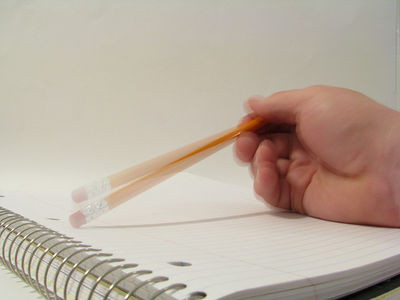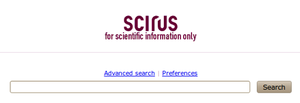Finding information
Contents
Finding information - The literature search
In order to undertake research, one has to be familiar with what scholars reverently refer to as "the literature." "The literature" is the body of scholarly work which focuses on the topic of interest to the individual researcher. When people refer to a "lit review" they are making reference to an essay, report or academic journal article which reviews the body of work on the topic they are developing.
Information types
The type of information you need depends on the course in which you are enrolled, your research topic, and the nature of your assignment. Once you have determined the types of information you need, you will be better able to select the information sources that are most likely to contain that information. If you have any doubt about the type of information you need, be sure to talk to your instructor and/or a reference librarian.
Consider the following questions regarding information types:
Having answers to these questions will help you when consulting a subject reference librarian and help you to target the most appropriate sources of information relevant to your research topic.[2] |
Sources of information
Internet web searches and libraries (both public and research libraries) are good places to source information for your literature search.
Searching the web
If you're like most people, you probably search the Web on a regular basis and you probably have a favourite search engine that you use every time, or almost every time you search. You may not know that different search engines often provide different results and support different types of searches. This section provides a brief description of some of the most important search engines and their features.
Altavista, Ask, Google, Live Search and Yahoo are just five of the many general search engines available for searching the Web. These search engines have a lot in common, but also have unique characteristics that you may want to explore.
Common functionality
All five of these search engines provide customised searching capabilities, including the ability to:
- retrieve documents that contain all words entered, regardless of their order or their location in the document, e.g. a search for climate change retrieves not only documents that contain the phrase "climate change" but also documents that happen to include the word climate and the word change
- support Boolean logic by combining terms using 'and', 'or' and 'not', or by using '+' to include a word or '-' to exclude a word
- allow users to limit their search by:
- domain/site (i.e. search only for documents in .edu or search only for documents at www.tyee.ca)
- words in a title (search only for documents in which your search terms appear in the document title, not the entire text of the document.)
- date
- file type
- language
- require the use of quotation marks to search for an exact phrase, e.g. "Okanagan valley"
- allow users to search for images and news.
Typically these features are indicated by a link to "advanced search" features on the respective website.
Specialized Search Engines
Google ScholarGoogle Scholar searches for scholarly literature (journal articles, conference papers, books, reports, etc.) across all academic disciplines. Search features are similar to those available in Google but searches may also be limited by author, publication (e.g. the journal Natural), and subject area.
Like Google Scholar, Scirus searches for scholarly information. Unlike Google Scholar, Scirus restricts itself to scientific, technical, and medical information. Scirus searches for information from selected scientific websites and from journals that are part of ScienceDirect, the online journal service of the scientific publisher Elsevier, which also owns Scirus. If your library licenses some or all of the journals available from ScienceDirect, you may find Scirus a useful tool for linking directly to articles while simultaneously searching the "open web". As is the case with Google Scholar, many libraries have inserted their own links into Scirus search results to point users to copies of the articles. If neither of these conditions applies to you, you may find it easier to use a research database[3].Libraries
Historically, libraries had mostly books, encyclopaedias and other reference material - the information sources at the end of the information timeline. In the 21st century many libraries now contain a wider range of information sources including CDs, DVDs, artefacts, newspapers, magazines, librarians, computers and access to the World Wide Web. We can distinguish between:
- The Physical Library. Typically these are found at learning centres, with reference librarians available to help you locate information.
- The Virtual Library. A virtual library can be described as information resources or information services which can be accessed without actually going into the library building, using the Internet and other digital information management systems. Virtual libraries can be accessed within a physical library or remotely from an internet café or home.
While you can't walk between the library stacks, or physically smell and touch a book by computer, a virtual library may contain many sources of information that are available on the shelves. What's more, with computer technology, many of the services that used to be printed are more efficient and easier to access and use in digital, or electronic form. Some of the resources available in a virtual library include catalogues, indexes, journals and reference material. Potentially all sources of information from the information timeline could be available in a virtual library. An academic virtual library can be used to locate information from the web (present information) and scholarly journals (published literature). Many libraries at education institutions hold subscriptions to electronic databases which can be accessed by registered students
Increasingly, there are a growing number of Open Access Journals. These are "virtual libraries" which provide open access to full digital texts without the need for institutions or individuals to pay subscriptions for access to the databases.
|
- ↑ Introductory paragraph adapted from " The art of Analysis by Joyce Leung, Trish Rosseel, Ross Tyner. Date: Unknown. Available online under Creative Commons Attribution-ShareAlike 2.0 (Canada) license.
- ↑ Section on information types adapted from " The art of Analysis by Joyce Leung, Trish Rosseel, Ross Tyner. Date: Unknown. Available online under Creative Commons Attribution-ShareAlike 2.0 (Canada) license.
- ↑ Information on searching the web and specialised searches adapted from " The art of Analysis by Joyce Leung, Trish Rosseel, Ross Tyner. Date: Unknown. Available online under Creative Commons Attribution-ShareAlike 2.0 (Canada) license.


